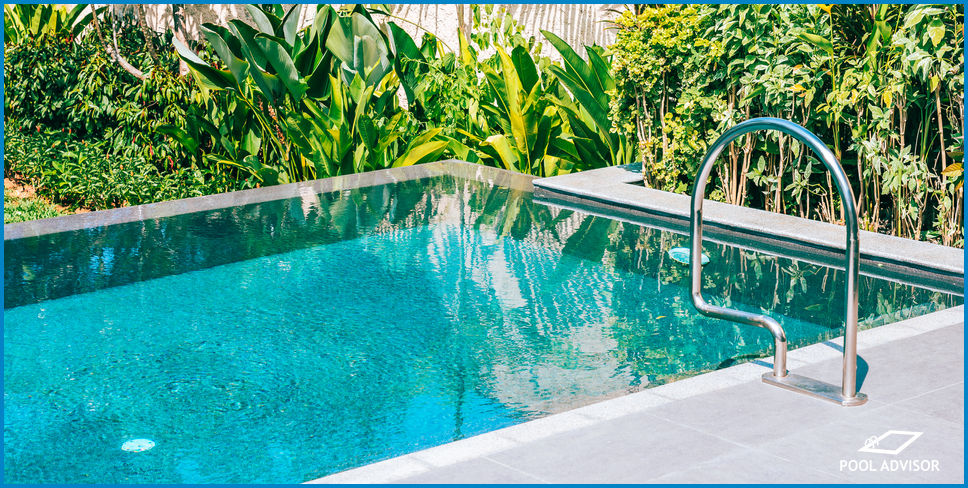
Copper Algaecides - How Do They Work? Which Is Best?
Even though copper based algaecides are among the strongest algae-killers available, they sometimes earn themselves a bad reputation.
Despite the fact that these products may sound overly industrial and potentially dangerous, these products are highly effective against algae and it is perfectly safe to swim in pools where these chemicals have been used.
In this article we will discuss the benefits as well as the risks of using copper based algaecides in your pool. We also include a list of recommended algaecide products that contain copper.
Copper Based Algaecides: The Benefits
Most pool algaecides contain copper compounds due to the fact that this metal is highly toxic to protista algae cells specifically.
Algaecides with copper compounds typically contain organocopper or chelated copper, which is copper that has been bonded with amino acids, making it less likely to interact with other compounds in the water.
Copper compounds are highly effective against protista algae cells. This is because copper molecules, though tiny and invisible to the naked eye, tend to be sharp and pointy.
The shape of the copper compound allows it to puncture the cell walls of algae that may otherwise resist treatment via normal sanitation methods.
Copper Based Algaecides: The Risks
The biggest downside of using copper based algaecides is the risk of copper staining.
Although most algaecides that contain copper have undergone many chemical processes in order to prevent staining from occurring, it is still possible for these copper molecules to interact with different elements in your pool’s water and form stains.
Stains are especially likely if your pool is not adequately chemically balanced before an algaecide is added. Always check your algaecide’s packaging for specific instructions on how to balance your pool’s chemistry in a way that is best suited for your product of choice.
Many of them recommend using a chlorine neutralizer to bring your free chlorine down to zero before adding the algaecide.
Our Recommended Products
Lo-Chlor Tropiclear Pool Algaecide
This algaecide contains copper compounds as well as ammonia compounds. Formulated specifically for use in tropical areas, this algaecide has compounds that have been tested in warmer water temperatures.
These compounds may also have more resistance to sunlight, making Lo-Chlor Tropiclear Pool Algaecide the most optimal choice for pools in these types of climates. Sold in a 2.5 litre jug, one jug of product is capable of treating a pool up to 50,000L in water volume.
Zodiac Pool Power Algaecide
This algaecide also contains both copper-based compounds and ammonia-based compounds. Sold in a 2.5 litre jug, algae treatment with this product takes 500mL of product per every 10,000L of pool water.
Although this product is slightly less concentrated than other brands, due to the abundance of liquid in the solution it is easier to distribute this product in your pool and allows for faster mixing into your pool's water.
For this reason, Zodiac Pool Power Algaecide makes the best choice for combating widespread, active algae infestations.
Pool Drops Algaecide
This algaecide is highly concentrated and relies primarily on chelated copper as opposed to combining this with a large amount of ammonia-based algaecidal agents. One one-litre bottle of this product is strong enough to treat a pool of up to 50,000 litres in volume.
Pool Drops Algaecide makes the best choice for preventative care, as it has been tested in a variety of different water conditions including in pools with an overabundance of chlorine or hot water temperatures.
This product also makes an excellent winterizer algaecide due to its long-lasting effects.
Conclusion
Copper based algaecides are safe and highly effective. Although these products can increase the risk of metal stains developing, following instructions closely when using these treatments can reduce the risks of stains occurring.
Do you have any questions about copper algaecides? Leave us a comment down below, we’d love to help!

Louis
A chemical engineer by trade, Louis is committed to debunking myths in the pool industry by explaining the underlying chemistry and making it accessible to all.
